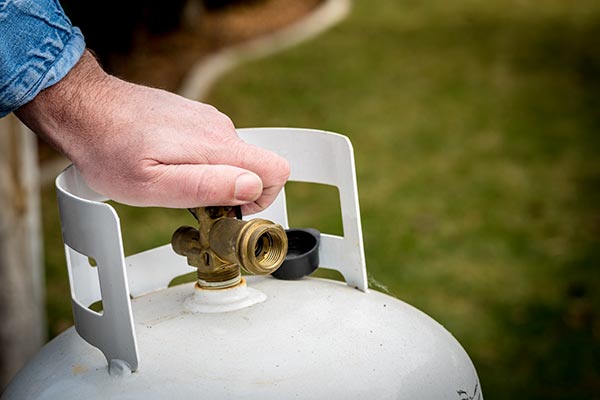Propane Safety Tips: Protecting Homes and Businesses

Propane is a reliable and efficient energy source commonly used in homes and businesses for heating, cooking, and powering appliances. While propane is generally safe when handled correctly, it’s essential to prioritize safety to prevent accidents and ensure the well-being of occupants. This guide offers some practical propane safety tips for both homeowners and businesses:
Prioritize Proper Installation and Maintenance
Whether you’re using propane for heating, cooking, or other purposes, ensure that all propane appliances are installed by qualified professionals. Regular maintenance checks by certified technicians are crucial to promptly detect and address any issues. Schedule annual inspections to keep appliances and propane systems in optimal condition.
Understand Propane Odor and Detection
Propane is naturally odorless, but manufacturers add a distinct odorant to help detect leaks. Familiarize yourself with the smell of propane – it’s often described as similar to rotten eggs or a skunk’s spray. If you detect a propane odor indoors or near propane equipment, evacuate the area immediately and contact your propane supplier or emergency services.
Install Carbon Monoxide Detectors
Carbon monoxide (CO) is a colorless, odorless gas produced by incomplete combustion of propane and other fuels. Install CO detectors in your home or business, especially near sleeping areas and propane appliances. Test detectors regularly and replace batteries as needed. If a CO alarm sounds, evacuate the building and seek fresh air immediately.
Store Propane Safely
Store propane cylinders and tanks upright in well-ventilated outdoor areas away from ignition sources, heat, and flammable materials. Never store propane indoors or in enclosed spaces such as basements or garages. Secure cylinders and tanks well in order to prevent tipping or damage.
Handle Propane Cylinders with Care
When transporting propane cylinders, secure them in an upright position in a well-ventilated area of your vehicle. Keep cylinders away from direct sunlight, excessive heat, and open flames. Never leave cylinders in a closed vehicle or trunk, as temperature fluctuations can cause pressure buildup and potential leaks.
Practice Safe Refueling
When refueling propane cylinders or tanks, turn off all appliances and pilot lights, and extinguish any open flames or cigarettes. Use caution when handling refueling equipment, and never overfill cylinders or tanks. If you’re unsure of how to safely refuel, contact your propane supplier for assistance.
Educate Household Members and Employees
Ensure that everyone in your household or business is familiar with propane safety procedures. Provide training on how to recognize propane leaks, respond to emergencies, and operate propane appliances safely. Display emergency contact information for propane suppliers and emergency services in visible locations.
Plan for Emergencies
Develop and practice an emergency plan that outlines steps to take in the event of a propane leak, fire, or CO alarm activation. Assign responsibilities to household members or employees, and designate a safe meeting point outside. Keep fire extinguishers and emergency supplies readily accessible.
Perform Regular Inspections
Inspect propane appliances, cylinders, and tanks regularly for signs of wear, damage, or corrosion. Look for loose fittings, rust, or dents that could indicate potential hazards. Promptly address any issues to prevent accidents or malfunctions.
Schedule Professional Training
Consider enrolling in a propane safety training course offered by reputable organizations or your propane supplier. Professional training can provide valuable insights into propane safety best practices, emergency response procedures, and regulatory requirements.
By following these propane safety tips, homeowners and businesses can minimize the risk of accidents and ensure the safe and efficient use of propane. Prioritize safety awareness, proper installation, maintenance, and emergency preparedness to protect yourself, the people under your roof, and your property from potential propane-related hazards.
















